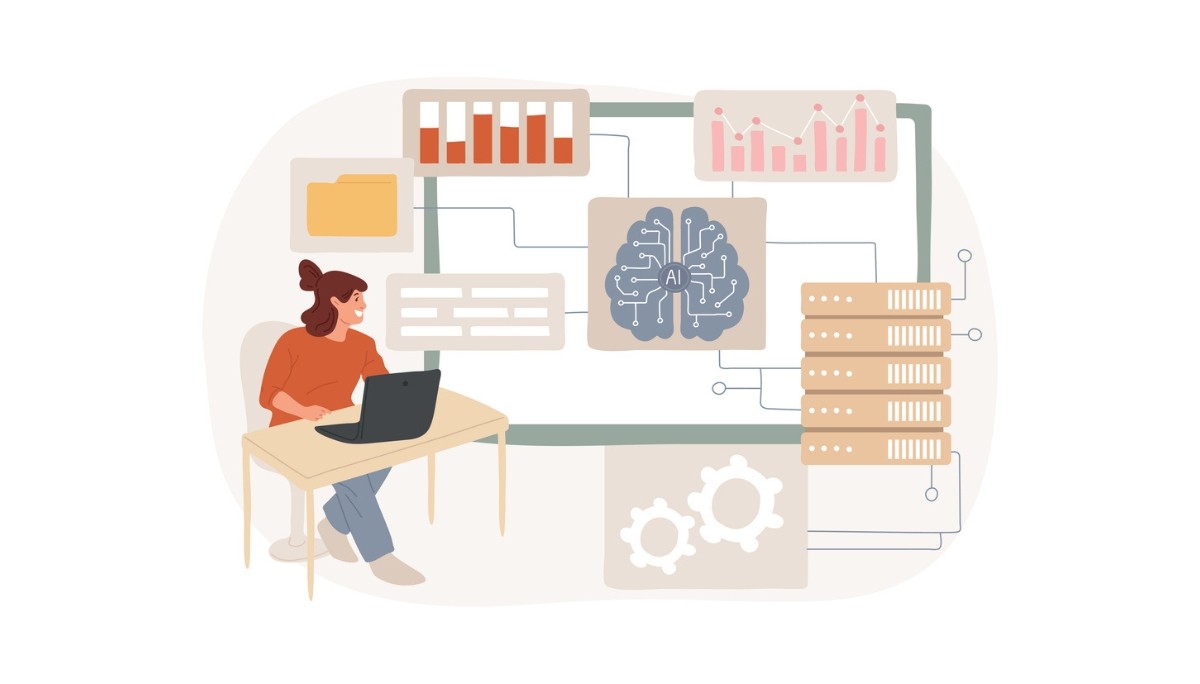What Fintech Engineers Do, How Much They Earn & Where to Find Jobs
By
Liz Fujiwara
•
Aug 6, 2025
A fintech engineer plays a crucial role at the intersection of finance and technology, driving innovation in how people and businesses manage money. These professionals design, develop, and maintain financial software solutions that enable secure, efficient, and scalable transactions. From building payment processing systems and digital banking platforms to creating blockchain-based applications and AI-driven financial tools, fintech engineers are shaping the future of the financial industry.
This article will explore the key responsibilities of a fintech engineer, the essential technical and analytical skills required, common career paths, and practical steps to start or advance in this dynamic field. Whether you are considering a career in fintech or looking to deepen your expertise, understanding the role of a fintech engineer is the first step toward success.
Key Takeaways
Fintech engineers merge finance and technology to develop secure and efficient financial transaction solutions, requiring both technical expertise and financial knowledge.
Essential skills for fintech engineers include programming, blockchain expertise, machine learning, and strong analytical capabilities, along with a deep understanding of financial systems and compliance regulations.
Career opportunities in fintech engineering are rapidly expanding, with a strong emphasis on resilience, continuous learning, and networking to stay competitive in this evolving industry.
Role of a Fintech Engineer

Fintech engineers sit at the crossroads of finance and technology, tasked with developing innovative and secure methods for users to execute financial transactions. They meticulously analyze financial transaction processes to eliminate unnecessary steps, ensuring efficiency and security. This role is not just about coding; it also requires a deep understanding of financial products and the technology that powers them.
In the financial technology sector, fintech engineers design, build, and maintain software for financial products. This includes creating algorithms tailored to the needs of the industry and integrating advanced technologies with financial services to meet market demands. The ability to blend financial knowledge with technological skills is what sets fintech engineers apart, making them invaluable to fintech companies. An engineering manager often plays a crucial role in overseeing these processes.
Essential Technical Skills for Fintech Engineers
Fintech engineers need a robust set of technical skills to succeed in the financial technology industry, including:
Programming proficiency, especially in versatile languages like Python
Knowledge of blockchain technologies
Expertise in machine learning
Understanding of artificial intelligence
Effective data management and visualization rely on strong analytical skills, enabling informed decision-making. Tools like Excel remain vital for data management in business settings. Additionally, cybersecurity knowledge is indispensable for protecting digital assets and ensuring data integrity.
Continuous learning and adaptability are essential to keep up with emerging technologies in the fintech industry.
Understanding Financial Systems and Products

Creating relevant applications requires:
Familiarity with financial products such as payment gateways, digital wallets, and investment solutions
Developing innovative products and services that meet market demands, which calls for a strong foundation in both finance and technology
Proficiency in data analysis tools like SQL and machine learning algorithms to further enhance an engineer’s capabilities
Moreover, understanding customer needs and the financial landscape is vital for developing services that effectively address market demands. Many fintech engineers come from backgrounds in mathematics, finance, economics, and computer science.
Compliance and Regulatory Knowledge
Regulatory knowledge is a critical component of fintech engineering. Fintech engineers must understand data privacy and compliance standards to ensure legal adherence. A compliance-first approach integrates regulatory considerations into all stages of fintech development, making it an essential aspect of the role.
Key financial regulations such as Anti-Money Laundering (AML), Know Your Customer (KYC), and data privacy laws must be integrated into product development. Regulatory requirements vary significantly depending on geographic location and the type of fintech services offered.
Monitoring regulatory updates is crucial for maintaining compliance and enhancing efficiency. Automated compliance solutions can help ensure that systems remain up to date with the latest regulations.
Cybersecurity Expertise
Cybersecurity is a fundamental pillar in the fintech industry for protecting sensitive data. Key points include:
Expertise in cybersecurity is crucial when hiring fintech engineers
Cybersecurity is a top priority for employers in the field
Professionals must comply with cybersecurity frameworks like NIST and ISO 27001 to ensure robust data protection
Understanding common cybersecurity threats is essential for fintech engineers. These include phishing, ransomware, and DDoS attacks. Engineers must conduct penetration testing to identify system vulnerabilities and build systems with safeguards to prevent fraud and data breaches.
Protecting user data involves practices such as data encryption, tokenization, secure data storage, and multi-factor authentication.
Creating Scalable Financial Solutions

Designing scalable financial solutions is paramount in the fintech industry. Fintech engineers must develop architectures that ensure secure and efficient transaction processing to meet growing user demands in distributed systems. Cloud computing skills are essential for creating scalable and flexible applications capable of handling increasing transaction volumes, especially for senior software engineers.
The financial technology sector is rapidly expanding, requiring solutions that support a growing number of users now and in the future. AI and data analytics play a key role in helping fintech solutions adapt and scale effectively with user demands.
Fintech developers play an essential role in designing systems capable of efficiently processing high volumes of financial transactions.
Soft Skills for Success
While technical skills are crucial, soft skills are equally important for success in the fast-paced fintech industry. Effective communication is essential for explaining complex problems to both technical and non-technical audiences. Problem-solving skills, including critical thinking and creativity, are necessary for identifying and diagnosing issues in financial technology.
Key skills and qualities for fintech professionals include:
Understanding user needs through empathy to enhance the user experience
Collaborating effectively with cross-functional teams
Demonstrating adaptability and curiosity to stay updated with evolving industry trends and technologies
Managing time efficiently to prioritize tasks and meet tight deadlines
Career Path and Opportunities

The career path for fintech engineers is filled with opportunities and growth. Projected job growth by 2030 places fintech engineering among the second-fastest-growing job categories. The right talent helps fintech companies stay at the forefront of the evolving financial technology landscape.
Resilience is a key attribute for fintech engineers, enabling them to handle setbacks and continue pursuing innovation. You should seek companies that encourage experimentation and allow for safe failure, as this environment can lead to significant breakthroughs and career advancement.
How to Get Started in Fintech Engineering
A career in fintech engineering requires:
A mix of formal education, hands-on experience, and continuous learning
Earning a master’s degree with a focus on multidisciplinary skills pertinent to the fintech sector
Gaining practical experience through lab work and real-world applications to develop essential skills
Obtaining certifications in specific fintech areas to demonstrate commitment to professional development
Networking with industry professionals and committing to continuous learning are key strategies for staying relevant in the dynamic fintech landscape.
Finding Jobs in Fintech

Strategic networking and staying informed about industry trends are essential for finding jobs in both the financial and fintech industries. Connecting with alumni and industry professionals on platforms like LinkedIn can open doors to job opportunities. Attending industry conferences is another effective way to network and stay updated on current trading strategies.
Engaging with blogs, YouTube channels, and podcasts allows candidates to showcase their knowledge and attract potential employers through various programs. Personalized cold emails to recruiters can also increase the chances of securing job opportunities.
The Role of AI in Fintech Hiring
Artificial intelligence plays a significant role in enhancing the recruitment process in the fintech industry. AI recruitment tools like Fonzi helps by:
Streamlining candidate sourcing, allowing teams to quickly identify suitable candidates through keyword matches and filters
Reducing bias in the hiring process
Protecting the candidate experience
Speeding up the hiring timeline
Responsible use of AI in hiring reinforces a human-centered approach, helping recruiters focus on people without replacing them. This ensures a fair and efficient hiring process that benefits both employers and candidates.
Practical Interview Tips
Succeeding in fintech engineering interviews requires:
Clear and straightforward communication to help candidates feel comfortable and encourage them to share their knowledge
Staying updated with the latest industry trends
Showcasing practical and relevant skills as part of interview preparation
Highlighting experiences that demonstrate problem-solving abilities, adaptability, and technical expertise can set candidates apart in a competitive job market. These tips can help candidates succeed in fintech engineering interviews.
Summary
In summary, fintech engineering is a dynamic and rapidly evolving field that offers numerous opportunities for growth and innovation. By developing a blend of technical and soft skills, staying updated with industry trends, and understanding the importance of compliance and cybersecurity, aspiring fintech engineers can build successful careers. The use of AI in recruitment, combined with practical interview strategies, further supports a successful path to a rewarding career in fintech engineering.




